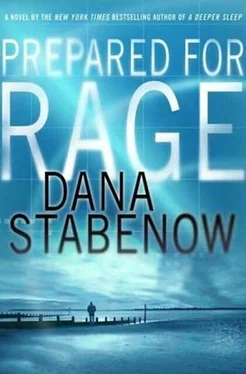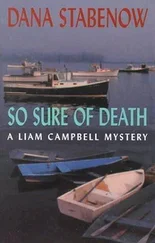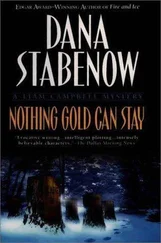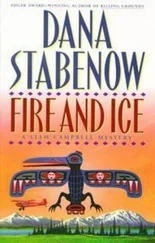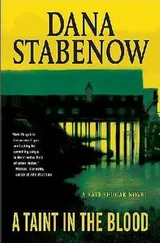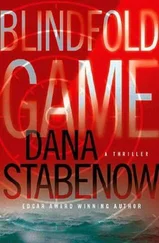"The fucker's giving us the finger again," he said, marveling, almost admiring.
"Which fucker?" Bob said.
Patrick got to his feet. "Bob, I'm sorry, I've got to go." He hung up the phone. "Melanie!"
HAITI
The anonymous little village was built on pilings perched on a narrow strip of tropical coastline at most a hundred feet in width between the almost vertical forest and the cerulean blue sea. It consisted in the main of a waterlogged marina with a dock ending in a ramp leading down to two wooden slips. The slips looked as if they were on the verge of going under for the third time. To the north and south of the marina were a few related businesses that looked even more tatterdemalion, and some one-room, thatched-roof homes clinging to the sides of the steep coastline that were almost tree houses. At the southern end of the village sat a shabby hotel, a one-story structure whose largest room was the bar, and a half-dozen bungalows with ancient thatched roofs teeming with insect life.
Up the coast from Port-au-Prince, it was so small it didn't even have a name, which might have explained why it was on no map. Although AMI thought that absence more probably had to do with the reason for its existence, its primary industry, which encouraged a wholesale discretion on the part of its residents, always providing they wanted to live to see tomorrow. It was probably the same reason that the encroaching vegetation had been encouraged to overhang the shoreline, all the buildings, and as much of the marina as possible. That much harder to spot, from the sea or the air.
There were a few open skiffs tied up to the marina, one painted a deep blue with a broad stern to accommodate the line of six large outboard motors bolted to it. Akil, inexperienced in the ways of boats, thought they looked very powerful.
He had been here for three days as the rest of the cell trickled in in ones and twos, some flying in on a seaplane held together quite literally with duct tape. Others came by ferry, a self-propelled scow whose arrivals and departures were as erratic as her drunken captain, a squat, scrofulous man with an almost incapacitating limp, very bad teeth, and one eye. Akil had arrived by car, although he'd had to hire a driver to find the road and then to get the car down the almost indecipherable switchback through the jungle, alive with bird calls. He imagined that he could hear the slither of snakes, too, and his driver, a gaunt, morose young man with the scarred knuckles of a fighter, enlivened the journey with a description of the various indigenous species. None of them were poisonous, the driver assured him, but Akil didn't like snakes, and this made the pit stops on the twelve-hour, twenty-two-mile journey interesting. If Akil had been in a less apathetic mood, he might have been more appreciative.
He didn't know quite what he was doing here. Yussuf, good soldier that he was, had arrived before him and had begun to gather in Yaqub's cell members as well as his own, settling them into the tiny cabana he had rented at the very edge of town. He brought them food-if all went according to plan they wouldn't be there that long but there was no point in giving away information about themselves to the investigators who would swarm about the place later-and he found women for those who wanted them. He led them in prayer, stiffening more than one spine, and when the Koran couldn't do the job, engaged the nervous in long discussions of what waited for them in paradise, with emphasis on the honey and the virgins.
During the last three days Yussuf couldn't be faulted. After the initial greeting, Yussuf had said only, "Yaqub?"
"He didn't make it," Akil said.
Yussuf muttered a prayer for his boyhood friend's soul and asked no more questions.
By comparison to Yussuf, Yaqub would have been at best only a decent aide de camp. Akil himself was superfluous.
He didn't need to be there. Moreover, he shouldn't be there. He'd known that before he'd arrived, before he'd left Miami, even. It was the first time he'd ever exposed himself to the risk of operations. For that matter the operation itself was at risk because of his actions. Sooner or later Zahirah's body would be found, and when they questioned Mrs. Mansour she would have too much of value to tell them. He cursed himself again for not returning to the house and disposing of her. He didn't make mistakes like that. It was why he was still alive, and still a threat.
He himself had flown on pre-existing reservations from Miami to Lima, from Lima to Mexico City, and from Mexico City to Port-au-Prince, a different passport for the last flight. The last two men had arrived this morning.
The transportation he had arranged for six months ago was due in late this evening. He would see off the faithful, entrust Yussuf with the completion of the operation, make the hazardous drive through the jungle back to Port-au-Prince, and fly to Paris, where he already had a reservation in a hotel where all the rooms had satellite television and he could watch the results of his plan play out on CNN and the BBC, and especially on Al Jazeera. It would be the glorious culmination of a long and inventive career, and a fitting coda to the life of his master, the man who had taught him everything. He knew Zarqawi would approve and rejoice at this astounding blow to the fabric and pride of the infidel.
The thought steadied him, and he returned to his room to sleep away the afternoon.
She was there the moment he closed his eyes. He knew it was a dream and he struggled to wake, but she wouldn't let him.
"Adara," he said.
"Akil," she said.
"Adara," he said.
"Stay with me," she whispered, her voice husky in his ears. "Daoud," she said. "Stay." Her hands ran shyly over his body.
"Zahirah," he said.
"Yes, my love, it's me. Stay with me, oh my best beloved."
He rolled her gently to her back and slid between her legs with a feeling like coming home, a feeling he had not known since he left his village for the last time. "Zahirah," he said, her name almost a prayer. "Zahirah."
"Daoud," she said, and he looked up to see dead eyes in a dead face, her neck bent in an unnatural angle, the dark marks of his fingers around the tender skin of her neck. Her body was cold, unmoving around him.
He woke violently, covered with sweat, and rolled off the bed to the floor. He scrabbled toward the bathroom on all fours, barely making it to the toilet in time. He vomited until his stomach heaved up nothing but a clear fluid, vomited until his esophagus and his sinuses burned like fire, vomited until he was too exhausted to do anything but lie on the bathroom floor in a puddle of his own sweat. He started to doze and jerked himself awake just in time. There would be no more sleep for him today.
He became aware of a persistent knocking. "Dandin?" Yussuf's anxious voice said. "Dandin, are you there?"
"A moment," he said. He rinsed out his mouth and sluiced off his face and reached for a towel. In the mirror he saw a reflection that shocked him, a gaunt and haggard face with haunted eyes.
When had he become so old? He was only thirty-seven.
THEIR TRANSPORT DRIFTED INTO THE MARINA LIKE A GHOST AT HALF past two the next morning. An eighty-foot sailboat with a hull painted black or a very dark blue and two dark red, lateen-rigged sails, or so Yussuf told him. He knew nothing of sailboats, or boats of any kind. The younger man could barely contain his excitement.
The master of the vessel knew what he was doing; he had the boat warped in to the slip and lines around the cleats in moments. There was a mutter of exhaust from the rudimentary main street of the village, and a large, enclosed truck backed down the dock, shaking the pilings beneath it. The passenger-side door banged and footsteps went to the back of the truck. They heard the click of a lock and the sound of a sliding door rolling up. There was a bewildered murmur of voices, cut short by a vicious, low-voiced curse. When the voices quieted the first voice snapped out an order, and many people began to come down the ramp.
Читать дальше
